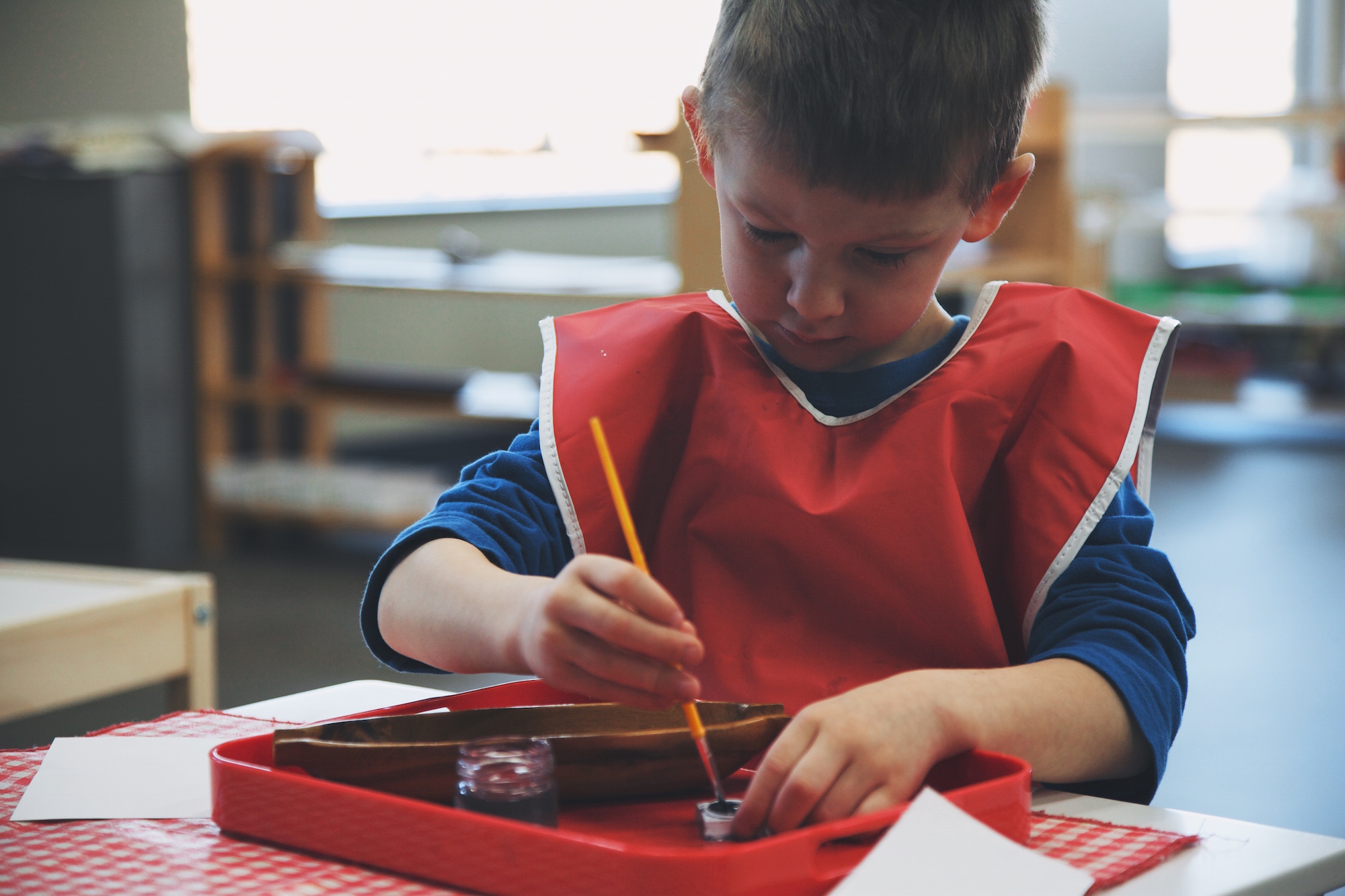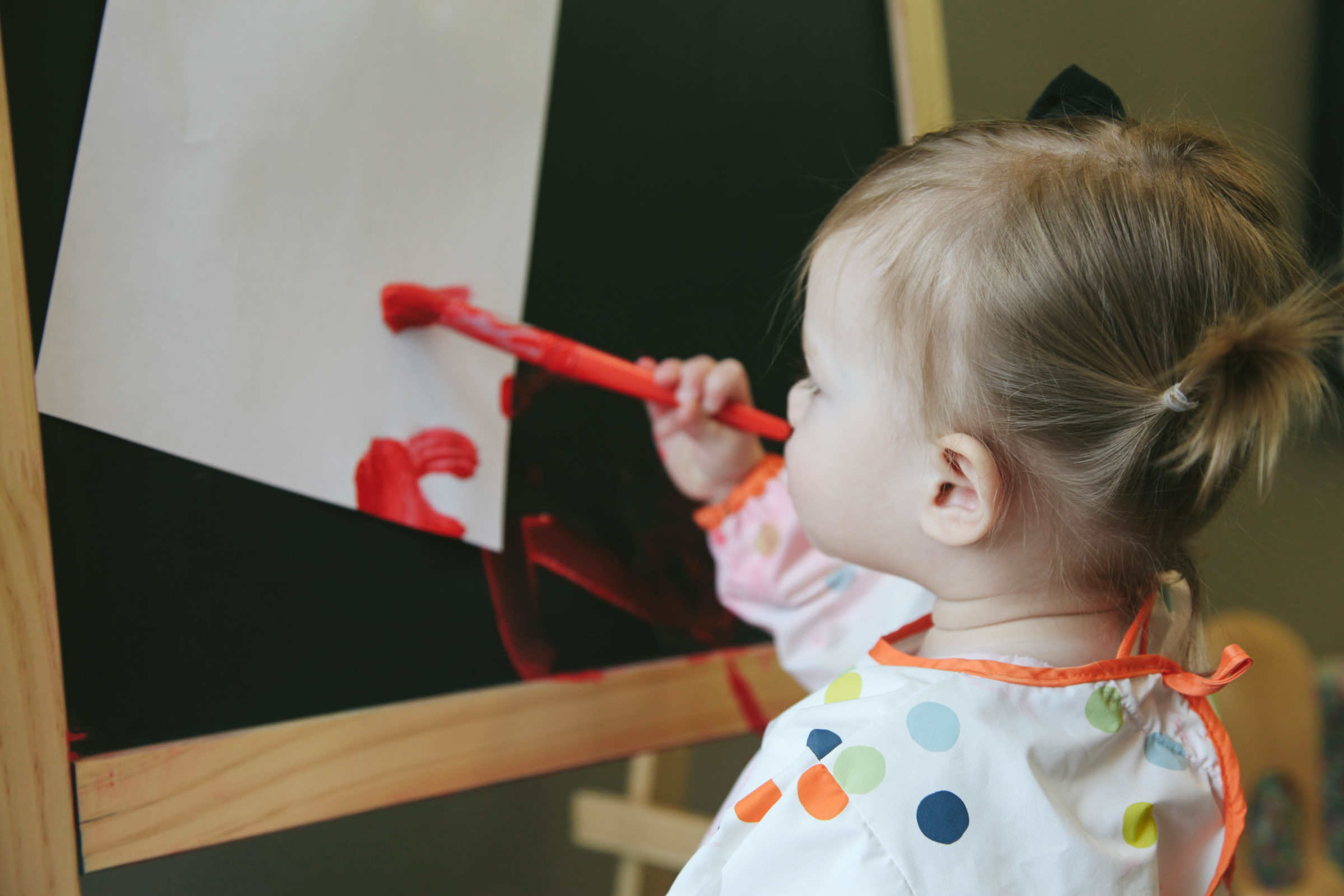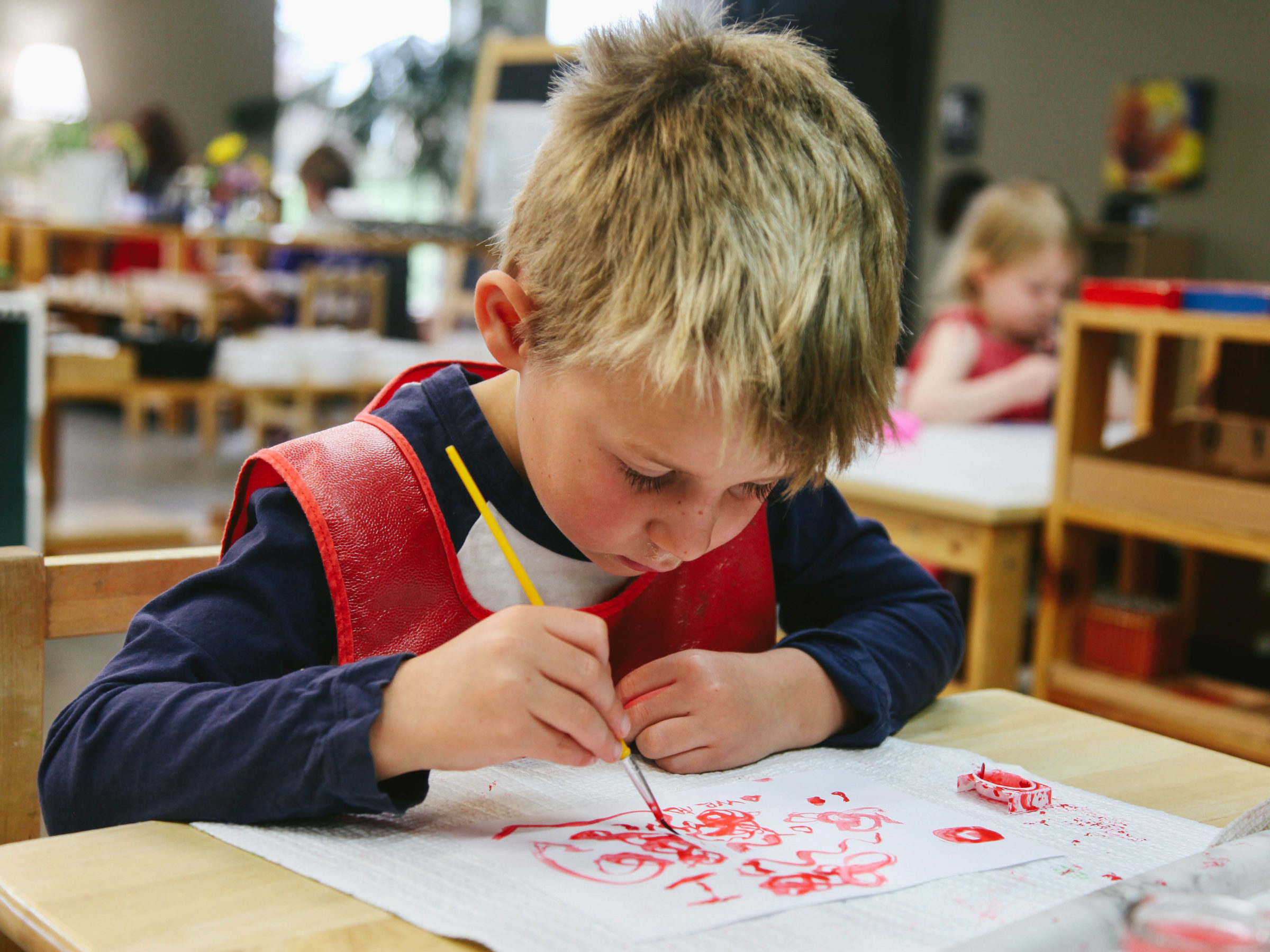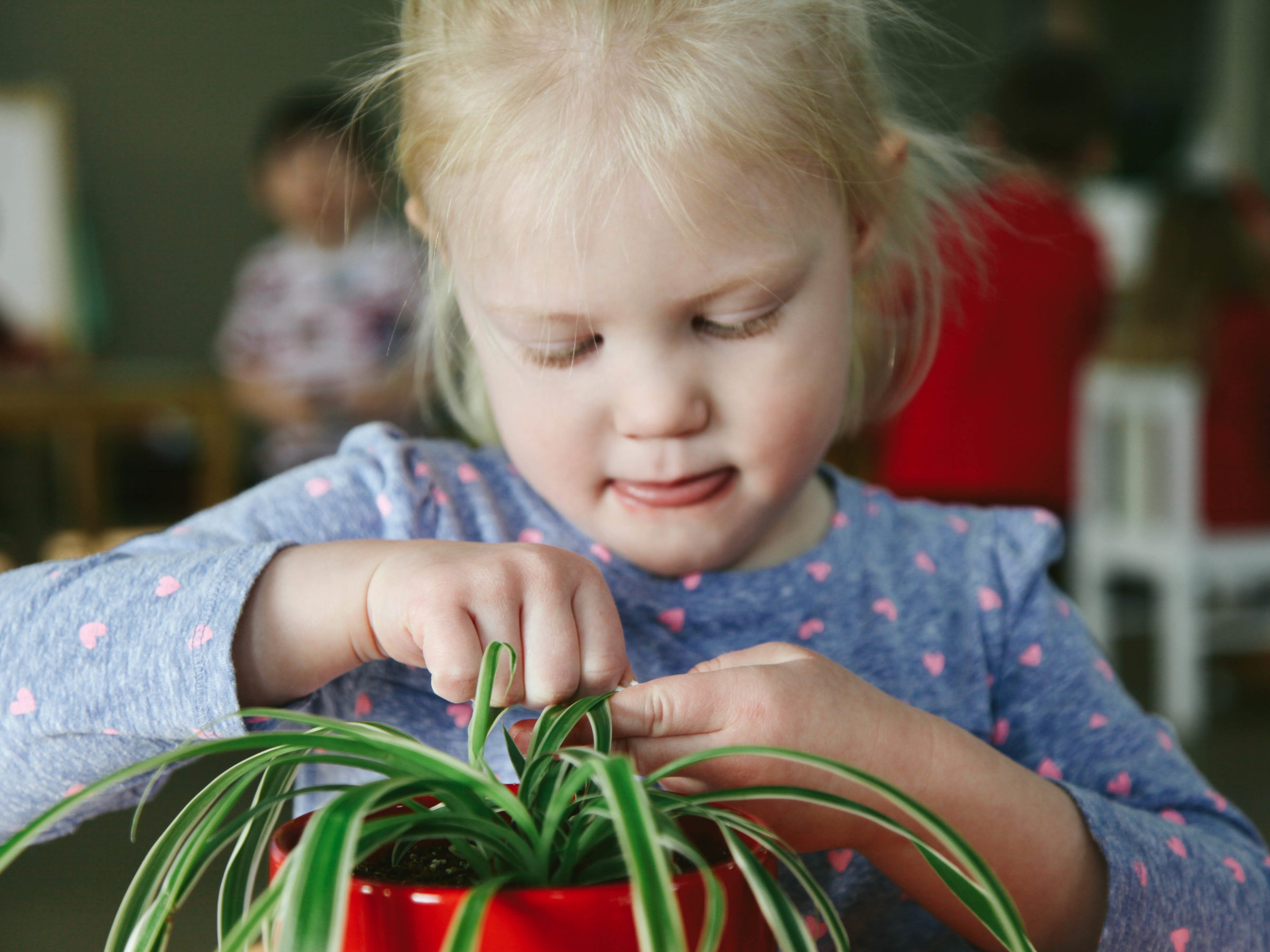Work & Play. Fantasy & Creativity.
Thoughts & Reflections
For prospective families that research Montessori prior to their visit, there are at least two main areas of inquiry that they are most eager to have us address.
1. First, they’ve read that Montessori has a different approach to creativity, and they want to learn more. In particular, they want to discuss the concept of free play and see how this is handled in Montessori.
Free play. As many of you know, and as we’ve written about previously, there is a misconception in Montessori about the nature of play, primarily because we call the activities they’re engaged with, “work”. The secret, of course, is to understand that if you substitute the word, “work”, with “play”, you arrive at something like the practice of practicing, which is exactly what happens on a daily basis in Montessori classrooms. Montessori fosters a positive conception of work.
There’s a particularly relevant quote from Lewis Hyde’s wonderful book, The Gift, as captioned by Maria Popova that conveys the point, although different terms are used: “Work is what we do by the hour. It begins and, if possible, we do it for money. Welding car bodies on an assembly line is work; washing dishes, computing taxes, walking the rounds in a psychiatric ward, picking asparagus–these are work. Labor, on the other hand, sets its own pace. We may get paid for it, but it’s harder to quantify… Writing a poem, raising a child, developing a new calculus, resolving a neurosis, invention in all forms — these are labors. Work is an intended activity that is accomplished through the will. A labor can be intended but only to the extent of doing the groundwork, or of not doing things that would clearly prevent the labor. Beyond that, labor has its own schedule….There is no technology, no time-saving device that can alter the rhythms of creative labor. When the worth of labor is expressed in terms of exchange value, therefore, creativity is automatically devalued every time there is an advance in the technology of work.” In short, Montessori creates the conditions in which children are free to explore their own rhythms with the activities they’re involved with. Maybe we should term it free work?
2. Second, prospective parents are also interested in learning more about how the concept of fantasy is treated in Montessori. This is an especially hot topic.
Fantasy. The topic of imagination is often construed with the conversation of fantasy. In Montessori, these are wholly separate topics. Imagination is what is generated each and everyday. Fantasy, on the other hand, is more of an imposed activity. For example, let’s say that a student wants to work on an art activity. If the student puts paint to paper and fashions a world of their own creation, we would term this, “imagination” of “fabulation”. They’re creating their own lines of flight. They’re discovering and exploring what they find of interest and what they would like to see in existence. Fantasy follows another path, a path that is one of imposition, rather than self-creation. It’s often remarked that children are “creative” if they see a cartoon of a ladybug driving a car, and attempt to draw that scenario. For us, what is truly creative, and emanates from imagination, is if the children fashion their own worlds. It’s not a creation ex nihilo argument, but one of generation.
With many ‘creative celebritites”, like Larry Page of Google, Jeff Bezos of Amazon, Beyonce, etc. all of whom recognize that Montessori played a vital developmental role in their creativity, these concepts have come to the forefront. What are your thoughts on creativity?
Written by:
Baan Dek



